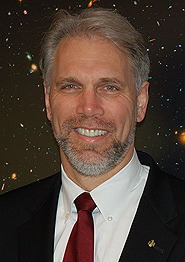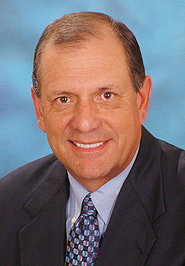Berkeleyan
UC's 2008-09 budget proposal approved
![]()
| 28 November 2007
Meeting at UCLA before the Thanksgiving holiday break, the UC Regents approved a 2008-09 budget proposal totaling $3.46 billion, an increase of $378.2 million (7.2 percent) above 2007-08.
The plan, which serves as the university's budget proposal to the state, includes new funding for student- enrollment growth at both the undergraduate and graduate levels; new research and public-service initiatives, most critically to help address issues in K-12 education; new money for student mental health; and salary increases for faculty and staff.
The regents will withhold action on student fees until after the governor's state budget proposal is issued in January.
The budget plan is based on the university's compact with the governor, an agreement that outlines state funding expectations and UC accountability expectations over a multi-year period.
UC Executive Vice President Katherine Lapp, in presenting the proposed budget to the regents, sounded a note of caution: "The state is facing significant fiscal constraints, which may limit its ability to meet all of the university's current budgetary needs. Therefore, UC has a responsibility to fund other critical needs and investments through cost-saving reforms identified as part of an ambitious and sweeping multi-year restructuring initiative."
The budget anticipates redirecting $28.1 million of initial savings from university efficiencies to other needs.
Budget highlights
Brief highlights of the 2008-09 budget plan follow. These items would be funded both from state resources and from other revenue to the university, including student-fee revenue:
Enrollment growth: The budget proposes funding for a 2.5 percent enrollment increase, or 5,408 full-time-equivalent students. This funding would allow the university to keep up with undergraduate-enrollment growth driven by continued growth in California's college-age population, as well as continue increasing graduate and health-sciences enrollments that historically have not kept pace with the state's needs.
K-12 "Educational Imperative": The budget includes $5 million to launch a new initiative, the Educational Imperative. Working in collaboration with public- and private-sector organizations, UC proposes a new research-based, technology-focused, policy-informing approach to meet California's educational-attainment challenge.
Research initiative: The budget proposes $10 million to fund a coordinated response to the challenge of climate change to agriculture and to the coastal and marine environment.
Student instruction: The budget proposes $10 million to help restore instructional budget cuts made in the first part of the decade. This is the fourth increment of funding over a multi-year period directed toward improving the student-faculty ratio at UC.
Faculty and staff compensation: A 5 percent pool is included for employee compensation increases, including merit-based and equity-based salary increases, health-and-welfare-benefit cost increases, and related cost increases. (Distribution of salary funding is subject to collective-bargaining requirements where applicable.) A portion of this state money will help fund a $263 million program recently launched to close the faculty salary gap by 2010.
Graduate-student support: Over the last four decades, graduate enrollment at UC has not kept pace with industry demands. To address the problem, UC is proposing $10 million to provide financial support to attract the best graduate students. This will continue a multi-year regental effort that has already increased graduate-student-support programs by $30 million from within compact and other funds.
Student mental-health services: Amid a growing nationwide crisis of students in distress and at risk, the regents have made adequate funding of student mental-health programs a top priority. The university proposes to increase funding for student mental-health services by an additional $8 million in 2008-09, for an increase over two years of $12 million.
Academic preparation: The budget continues current state and UC funding levels for student academic-preparation and educational-partnership programs, which work to improve the academic performance and college preparation of K-12 students.
UC Merced: The budget provides $10 million in one-time funding needed for continuing startup costs for UC's newest campus at Merced. One-time funding for faculty hiring and other startup costs has been provided in the last seven budgets, including $14 million in 2007-08. By agreement with the state Department of Finance, the amount requested for 2008-09 will phase down to $5 million in 2009-10, and to zero in 2010-11.
The regents' operating-budget request is online at www.universityofcalifornia.edu/regents/regmeet/nov07/f4attach.pdf.
A vote to oppose Prop. 92
In other business, the regents voted to take a position of opposition on Proposition 92, an initiative on the Feb. 5 ballot in California. The vote was 15-0, with Student Regent Ben Allen and Lt. Gov. John Garamendi abstaining.
The measure, known as the Community College Governance, Funding Stabilization, and Student-Fee Reduction Act, would establish a separate Proposition 98 funding guarantee for the California community colleges, as well as a separate enrollment-growth formula. It also contains provisions to reduce student fees and alter the governance of the community colleges.
While expressing strong support for the university's vital partnership with the community colleges and for the continued importance of effective collaboration between the UC system and the two-year colleges, the regents also expressed concern that by increasing the Proposition 98 guarantee, the February ballot initiative could leave less state general-fund money available for discretionary purposes, including programs not protected by state guarantees or mandates (such as UC and the CSU system).
UC's share of the state general fund has fallen from 7 percent in 1970 to just over 3 percent today. Since 1990, the state's contribution to the cost of education for each UC student has fallen 34 percent, from $15,830 to $10,370 in constant inflation-adjusted dollars.
Two key appointments
The appointment of Steven Beckwith as UC systemwide vice president for research and graduate studies, effective Jan. 1, 2008, was approved by the regents.
 Steven Beckwith (Photo courtesy Johns Hopkins Space Telescope Science Institute) |
This is a new position for UC, approved by the regents in May in response to the recommendations of an academic committee appointed to review the function, organization, development, and leadership of the research-support operations at the Office of the President.
The committee's recommendations emphasized the need for a new position to play a leadership role nationally on research issues, serving as a strong advocate for federally funded basic research, for enhanced industrial partnerships, and for continuing integration between the research endeavors of the UC campuses and of the university-linked national laboratories. The committee also recommended that this position have broad responsibility for policy oversight and advocacy for graduate-education matters, which currently are shared by multiple departments within the Office of the President.
Beckwith, 55, has worked since 1998 at the Space Telescope Science Institute, serving as director from 1998 to 2005. In this role he was responsible for overseeing approximately 600 people, including more than 100 Ph.D. scientists, conducting research for the Hubble Space Telescope. Beckwith is also credited with developing the Hubble Ultra Deep Field, the deepest optical image ever taken of the universe.
The regents also appointed Daniel Dooley, an agricultural and environmental attorney with extensive experience in California agriculture, to head UC's statewide agricultural and natural resources programs, effective Jan. 2, 2008.
As systemwide vice president for the university's division of Agriculture and Natural Resources (ANR), Dooley will lead a statewide research and public-service organization responsible for activities in agriculture, natural resources, environmental sciences, family and consumer sciences, forestry, human and community development, 4-H/youth development, and related areas.
 Daniel Dooley |
ANR programs and services, including Cooperative Extension and the Agricultural Experiment Station, are located on UC's Berkeley, Davis, and Riverside campuses and in more than 50 regional and county offices throughout the state, with nearly 1,000 faculty, specialists, and advisers and an annual budget of $300 million, including $117 million in state funding.
Dooley has had a long relationship with UC and the agricultural community. He previously served as chief deputy director of the California Department of Food and Agriculture (1977-80) and chair of the California Water Commission (1982-86). He has chaired both the UC President's Advisory Commission on Agriculture and Natural Resources and the UC Agricultural Issues Center's advisory board, as well as serving as UC representative on the Council for Agriculture Research, Extension, and Teaching (CARET), a national grassroots organization of the land-grant universities and colleges.
Dooley currently is a partner at Dooley, Herr and Peltzer, LLP, a Visalia-based law firm emphasizing agricultural, environmental, business, and water-rights law. He has distinguished himself by successfully bridging environmental and economic considerations in a number of controversial legal issues, including the recent settlement of protracted litigation regarding the restoration of the San Joaquin River, the reintroduction of salmon, and the maintenance of agricultural practices supported by water from the river.

